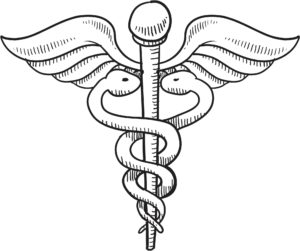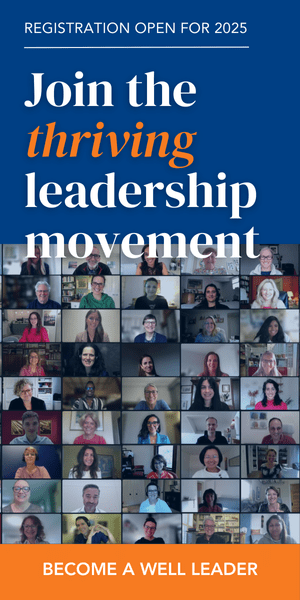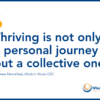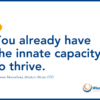True leadership “appreciates and invites the potential for every single person in the group—the corporation, the business, the hospital, the government, the planet—to come to the fore in their fullness.” – Jon Kabat-Zinn
Upsurges in conflict, increasing alarms about water and our planet’s other natural resources, entrenched inequalities, data breaches and a rising distrust in technology, and political upheavals are but a few of the challenges we collectively grapple with. Countless people feel like the world has turned itself inside out—with everything up for question, and in our worst moments, everything up for grabs. Our current time feels blotted with profound turmoil. Yet I believe it is calling us to ask deeper questions about what it means to be here—together. This is our invitation to use the collective imbalances we face for cultivating new mindsets, values, energy systems, and capabilities to thrive as whole human beings.
Choosing to accept this invitation, however, will require a wiser leadership from within us and between us … a evolving form of leadership where we are individually and collectively inspired to elevate the world toward life-giving values, new levels of capability and resourcefulness, and wisdom.
Where can we begin?
In a dialogue about this with Google’s Vice President of People Development Karen May, renown meditation teacher Jon Kabat-Zinn surfaced a possible starting point: a Hippocratic oath for leadership.
This “first do no harm” principle for leaders isn’t far-fetched at all. We think of the Hippocratic Oath as the basis of ethical medical practice beginning with the physicians of Ancient Greece and embraced by modern medicine today. Yet business schools such as the Thunderbird School of Global Management have adopted a version of the Oath to instill the values of responsibility and integrity into graduates, a practice which has gained steam in business schools globally. Consider The Oath Project, which uses a Hippocratic Oath for business as the foundation for positive, transformative change.
Rakesh Khurana and Nitin Nohria, the Harvard Business School colleagues credited with getting the Oath ball rolling in business, say:
“Management… will have to become more like the learned professions of medicine and law. Professions such as these are, at least in theory, characterized by an orientation to serving society—and they have something the profession of management does not have—a normative code or oath that encourages leaders to consider the broader implications of their actions.”
Is it time for leaders (that means you, me, all of us) to commit to “first do no harm”?
Listen in while Kabat-Zinn and May explore this and other dimensions of the wisdom-driven leadership so needed in our complex times:
Want more? Wisdom Works has launched a new leadership assessment, Be Well Lead Well® Pulse, to help leaders examine and uplevel their thriving, resilience, and wisdom to positively impact the people and teams they lead. If you’re interested in learning about this assessment, our Be Well Lead Well® leadership programs, or our collection of practices for thriving as leader and human being, then drop me an email at renee@wisdom-works.com.
READ MORE
- Can Wellbeing Drive Value for Business & Society?
- Don’t Wait Until Later—Thriving Is Your Best Strategy
- The First Principle of Wellbeing at Work: Is This Workplace Safe?
- Ready To Build a Culture of Wellbeing: 3 Tools Can Help
- Three Illusions that May Prevent Your Deepest Wellbeing
- 3 Strategies to Unleash Your Potential As Leader And Whole Human Being
- Ready To Disrupt Yourself On Purpose? Try Uncentering!
- Your Inner Game Runs Your Outer Game
- Rewiring Yourself For Better Leadership And A Healthier Life (Part 1) and (Part 2)
- Shifting From Reactivity To Wellbeing
Shutterstock Image: 90658915







